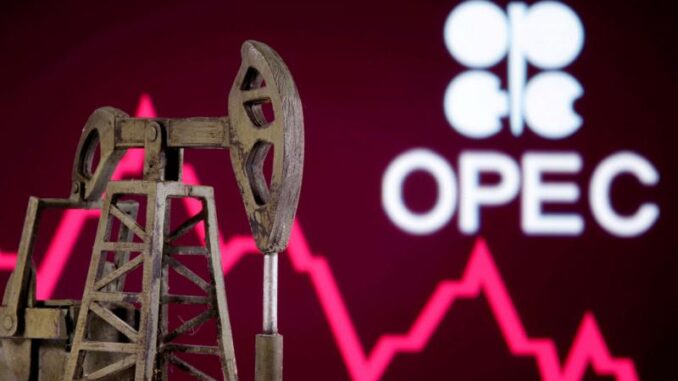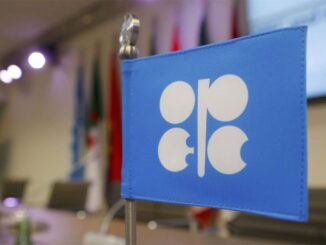
With the global economy in crisis, more oil and gas production is needed, a top US envoy said Oct. 31, sharing a stage with Saudi and UAE energy ministers, who defended the recent decision by OPEC and its allies to cut output.
“Energy prices have to be priced in a way that allows for economic growth,” said Amos Hochstein, the Biden administration’s special envoy and coordinator for international energy affairs. “If they are not, then they will accelerate the oil price decline, and accelerate an economic downturn, which is one thing that will be terrible for energy demand, as well.”
His comments, at the annual Abu Dhabi International Petroleum Exhibition and Conference, where energy security was expected to be top of the agenda, came as a geopolitical row has erupted between the US and OPEC kingpin Saudi Arabia over crude supplies amidst soaring inflation.
OPEC and 10 allies, including Russia, agreed Oct. 5 to slash production quotas by 2 million b/d from November, saying it was a “technical decision” aimed at warding off the impacts of a potential global recession in the months ahead, even as the EU is set to begin an embargo on Russian crude imports on Dec. 5.
The announcement sparked outrage from the Biden administration, which said the cuts would bolster prices, endangering the world economy and helping finance Russia’s war in Ukraine. US President Joe Biden has warned of unspecified “consequences” for the decision.
Platts assessed the Dated Brent benchmark at $94.03/b on Oct. 28, roughly the same level as before the OPEC+ meeting, though the benchmark had risen to $98.40/b on Oct. 10.
UAE energy minister Suhail al-Mazrouei, speaking at the same session as Hochstein, said OPEC+ producers stood ready to supply the world with any needed oil, but was focused on balancing supply and demand.
“We have a mechanism to get together, if the requirements are there, but this technical organization is always going to stay as a trusted technical organization,” he said. “That is our commitment, and that is a requirement, like we have done so many times in the past. We are only a phone call away.”
OPEC+ ministers are next scheduled to gather Dec. 4 in Vienna to review the decision.
US-Saudi friction
Saudi energy minister Prince Abdulaziz bin Salman, who on Oct. 25 had accused the US of using its releases from strategic petroleum reserves “as a mechanism to manipulate markets,” also spoke at the ADIPEC session, though he did not directly address the spat.
The US has been releasing about 1 million b/d from its SPR since April in a bid to temper crude prices.
Prince Abdulaziz said Saudi Arabia, along with other OPEC+ producers, was investing heavily not only in crude production capacity but also hydrogen and renewables.
“Breaking the so-called energy constraint will take a lot of investments and a lot of technologies, without which we cannot approach the future with the right recipes that we are committed to deliver,” he said.
The prince was not available to speak with reporters following the session, but Hochstein, the most senior American official speaking at ADIPEC, played down the split between the US and Saudi Arabia.
“There is lot less drama that people make,” he told reporters. We have very strong disagreements on policy. But not everything has to be a soap opera.”
One area every speaker agreed on was the need for more oil and gas investments to meet future demand, even as the energy transition gains pace.
OPEC officials have criticized the US’ emphasis on alternative fuels and emissions reductions as damaging to the investment climate for fossil fuels, which they said was jeopardizing global energy security and leading to market volatility.
Oil vs. alternatives
Mazrouei said that oil producers outside the OPEC+ alliance “need to do their part in investing and encouraging investments, as we need it more than ever.”
Sultan al-Jaber, the CEO of Abu Dhabi National Oil Co., forecast that the world would need 30% more energy supplies by 2050 and that zeroing out hydrocarbon investments would lead to a 5 million b/d annual decline in crude production capacity due to natural declines.
Hochstein, however, said there was no conflict between the Biden administration’s call for more oil supplies, while prioritizing the energy transition.
“They are not contradictory, there are just two different timelines,” he said on the panel. “But to get to those [climate] goals, you have to invest yesterday. We still have the reality of the economy that we have today, and we need more [oil] investment right now.”
Hardeep Singh Puri, India’s minister of petroleum and natural gas, said rising crude prices were damaging to large consuming countries, such as his own. India has often lobbied OPEC for price breaks as a key customer of the bloc’s crude and has been eagerly snapping up discounted Russian oil since the invasion of Ukraine.
“High energy prices… have consequences, which we need to factor in,” he said. “Many of us are now going to diversify. We are going to look at alternate areas faster than we originally had envisaged.”



